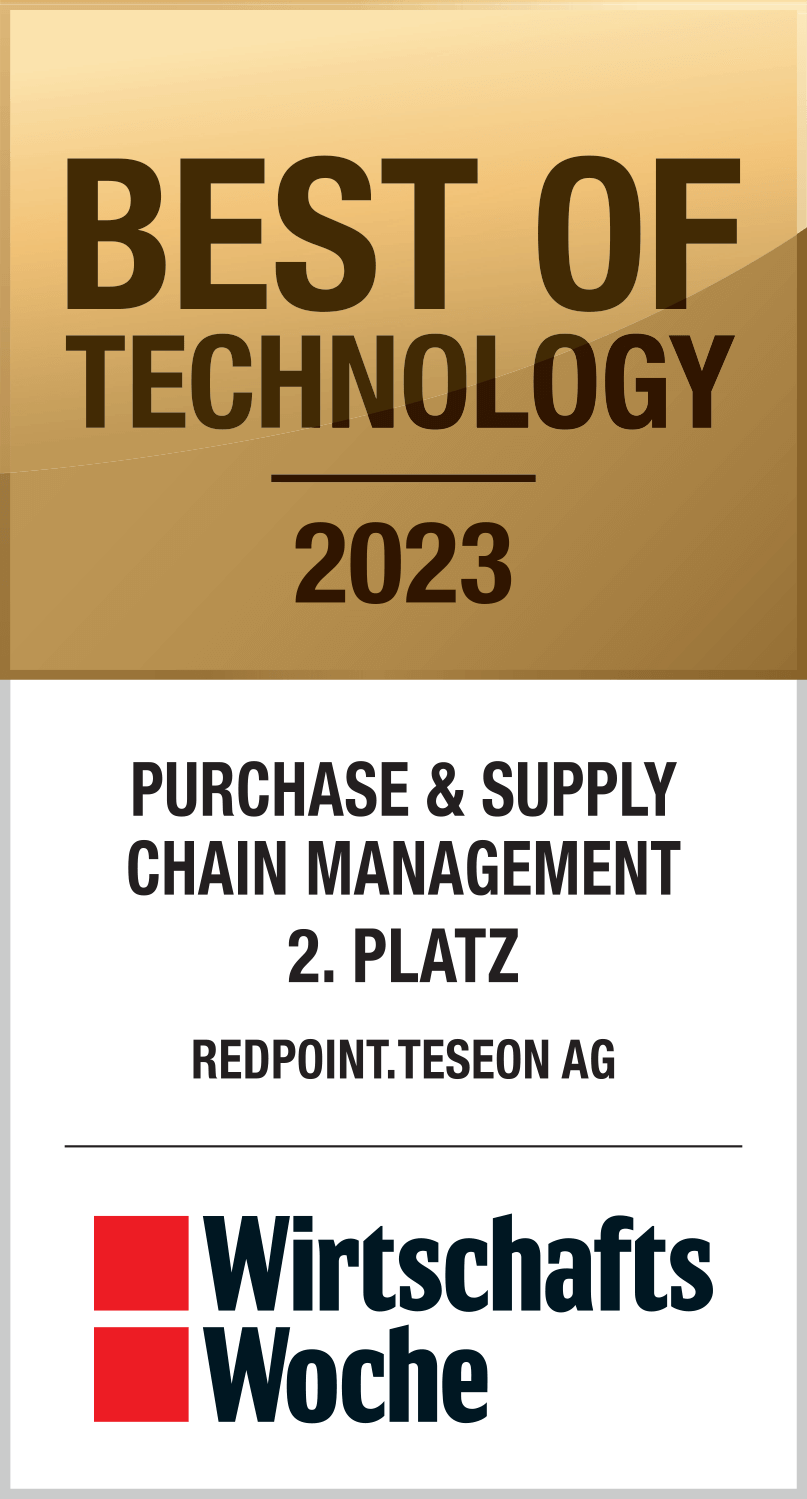SCM Maturity
WHAT DOES SCM MATURITY LEVELS DESCRIBE?
As an organizational and management concept, supply chain management (SCM) aims to significantly increase the efficiency and performance of a company. This is achieved through closer cooperation between the manufacturing company and customers and suppliers as well as better coordination of the value creation processes. Supply chain management (SCM) today encompasses a wealth of design principles and methods.
In practice, companies often pursue very different approaches and use the corresponding SCM instruments with varying degrees of success. The SCM maturity level is a measure of a company’s level of development in supply chain management (SCM) and how purposefully it uses the SCM method toolkit to increase its logistical performance.
HOW IS THE REDPOINT MATURITY MODEL STRUCTURED?
redpoint.teseon uses five success-critical factors in supply chain management (SCM) to determine the SCM maturity level. These are responsiveness, agility, leanness, the organization’s ability to learn and the alignment of interests within the supply chain.
Responsiveness describes the ability to react quickly to unplanned market requirements – e.g. fluctuations in demand or special customer requests.
Agility describes the ability to quickly adapt operational cost structures to changes in the market environment. In addition to minimizing fixed costs and the pronounced standardization of products and processes, risk management is also essential. This makes it possible to recognize critical adjustments at an early stage.
The extent to which a company succeeds in creating value as efficiently as possible is reflected in the lean factor. A demand- and flow-oriented organization on the one hand and a management and incentive system tailored to this on the other can minimize waste in the supply chain. This is supported by continuous quality and improvement management.
For the systematic further development of supply chain management (SCM) in the sense of a learning organization, efficient organizational and information structures must be in place within the company. Fast information transfer across all process stages, integrated data models and business applications as well as an ergonomic presentation of information are important prerequisites for this. Based on the systematic measurement of supply chain performance, effective management control loops must be set up so that improvement measures can be initiated promptly in the event of deviations from the target status. Supply chain management (SCM) must be seen as a key management task for the success of the company. This is expressed, among other things, in a suitable hierarchical anchoring of SCM as well as clear objectives and responsibilities.
You can download the complete white paper using the download button below.
Download whitepaper (Only available in german)
Author

Managing Partner
REDPOINT.TESEON GmbH
